-
 Bitcoin
Bitcoin $121,713.8152
3.06% -
 Ethereum
Ethereum $3,041.6437
2.42% -
 XRP
XRP $2.9499
5.12% -
 Tether USDt
Tether USDt $1.0000
-0.02% -
 BNB
BNB $704.1034
1.75% -
 Solana
Solana $166.7523
2.91% -
 USDC
USDC $0.9999
0.00% -
 Dogecoin
Dogecoin $0.2052
2.90% -
 TRON
TRON $0.3011
-0.47% -
 Cardano
Cardano $0.7461
1.42% -
 Hyperliquid
Hyperliquid $48.3650
1.12% -
 Stellar
Stellar $0.4548
3.52% -
 Sui
Sui $3.9527
14.50% -
 Chainlink
Chainlink $16.3300
5.87% -
 Bitcoin Cash
Bitcoin Cash $511.8016
1.25% -
 Hedera
Hedera $0.2395
1.40% -
 Avalanche
Avalanche $21.6526
2.06% -
 UNUS SED LEO
UNUS SED LEO $9.0073
-0.23% -
 Shiba Inu
Shiba Inu $0.0...01369
2.61% -
 Toncoin
Toncoin $3.0335
0.66% -
 Litecoin
Litecoin $96.6206
1.72% -
 Monero
Monero $355.1673
5.35% -
 Polkadot
Polkadot $4.0839
2.47% -
 Uniswap
Uniswap $9.3282
9.72% -
 Dai
Dai $0.9997
-0.01% -
 Ethena USDe
Ethena USDe $1.0004
-0.04% -
 Pepe
Pepe $0.0...01248
1.07% -
 Bitget Token
Bitget Token $4.4642
2.68% -
 Aave
Aave $325.0626
6.81% -
 Bittensor
Bittensor $418.1482
6.22%
Best EMA for 4 hour chart crypto
EMA crossovers on 4-hour crypto charts help identify trends and potential entry/exit points, especially when combined with volume or RSI for confirmation.
Jul 12, 2025 at 02:56 am
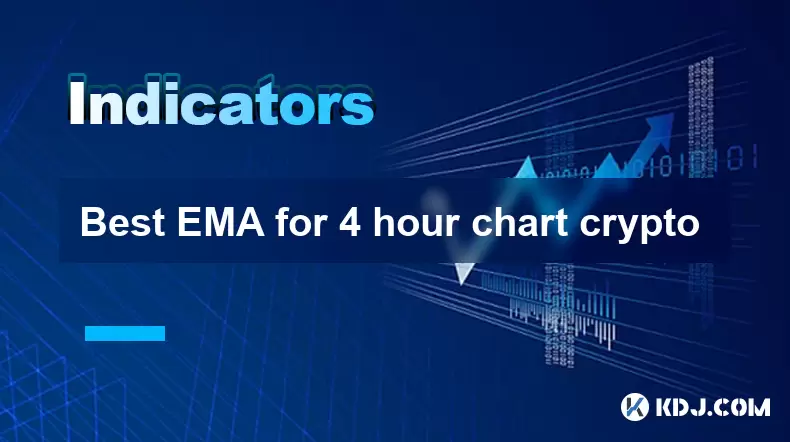
Understanding EMA and Its Role in Crypto Trading
Exponential Moving Average (EMA) is a widely used technical indicator that gives more weight to recent price data, making it more responsive to new information compared to the Simple Moving Average (SMA). In crypto trading, especially on the 4-hour chart, EMA helps traders identify trends, potential reversals, and entry or exit points.
Because cryptocurrencies are known for their volatility, using the right EMA settings becomes crucial. Traders often rely on combinations of EMAs to filter out noise and focus on significant price movements. The 4-hour chart is popular among both day traders and swing traders due to its balance between short-term signals and long-term trend confirmation.
Key Takeaway: EMA adapts quickly to price changes, making it ideal for analyzing 4-hour crypto charts.
Popular EMA Combinations for the 4-Hour Chart
Many traders use multiple EMAs together to create a more robust trading strategy. Two commonly used combinations on the 4-hour chart are:
- 9-period EMA and 21-period EMA: This combination is favored by short-term traders who want early signals while still maintaining some reliability.
- 50-period EMA and 200-period EMA: These longer-term EMAs help identify major trend directions and are often used by swing traders.
The crossover of these EMAs can act as buy or sell signals. For example, when the shorter EMA crosses above the longer EMA, it may indicate an uptrend, while a cross below could signal a downtrend.
Important Note: The effectiveness of EMA combinations depends on market conditions and should be used alongside other tools like volume or RSI.
Setting Up EMA on Your Trading Platform
To apply EMA on your 4-hour chart, follow these steps:
- Open your preferred trading platform (e.g., TradingView, Binance, or MetaTrader).
- Select the cryptocurrency pair you're interested in (e.g., BTC/USDT).
- Navigate to the indicators section and search for "Exponential Moving Average."
- Add the first EMA with a period of 9 and another with 21.
- Customize colors and line thickness for better visibility.
- Apply the settings and observe how the EMAs interact with price action.
Some platforms allow you to save this setup as a template for future use, saving time during analysis.
Pro Tip: Use different colors for each EMA line to avoid confusion during fast-moving market conditions.
Interpreting EMA Crossovers on the 4-Hour Timeframe
In the context of the 4-hour chart, EMA crossovers can provide actionable trade setups. Here's how to interpret them:
- When the 9 EMA crosses above the 21 EMA, it suggests bullish momentum and could be a buying opportunity.
- Conversely, if the 9 EMA crosses below the 21 EMA, it indicates bearish pressure and might signal a sell.
- It’s important to wait for the candle to close before acting on a crossover to avoid false signals.
These crossovers work best in trending markets but can produce misleading results during sideways or choppy price movement.
Critical Insight: Always confirm EMA signals with additional tools like support/resistance levels or volume spikes.
Combining EMA with Other Indicators for Better Accuracy
Using EMA alone may not be sufficient for consistent trading success. Combining it with complementary indicators can enhance decision-making accuracy:
- Relative Strength Index (RSI): Helps identify overbought or oversold conditions. If EMA shows a bullish crossover but RSI is in overbought territory (>70), caution is advised.
- Volume: A strong EMA crossover supported by increased volume adds credibility to the signal.
- Bollinger Bands: Can show whether the price is near extreme levels, helping assess the strength of EMA-based entries or exits.
By layering these tools, traders can filter out weak signals and improve risk-reward ratios.
Expert Advice: Never rely solely on EMA—always incorporate at least one confirming factor before entering a trade.
Frequently Asked Questions (FAQs)
Q: Can I use the same EMA settings across all cryptocurrencies?
A: While the 9 and 21 EMA combination works well for many coins, some altcoins with higher volatility may require adjustments. Always backtest settings on individual assets before live trading.
Q: How do I know if an EMA crossover is reliable?
A: Look for confluence with other factors such as volume surges, key support/resistance breaks, or alignment with higher timeframes. A single EMA crossover without confirmation should be treated cautiously.
Q: Should I use EMA or SMA for the 4-hour chart?
A: EMA responds faster to price changes, which makes it more suitable for timely entries. However, SMA offers smoother lines and fewer false signals, so some traders prefer using both together.
Q: Is it possible to automate EMA-based strategies on crypto exchanges?
A: Yes, many platforms and bots (like 3Commas or Gunbot) allow users to set up trading bots based on EMA crossovers, though manual oversight is recommended to prevent losses from unexpected market behavior.
Disclaimer:info@kdj.com
The information provided is not trading advice. kdj.com does not assume any responsibility for any investments made based on the information provided in this article. Cryptocurrencies are highly volatile and it is highly recommended that you invest with caution after thorough research!
If you believe that the content used on this website infringes your copyright, please contact us immediately (info@kdj.com) and we will delete it promptly.
- Trump, Bitcoin, and Reserves: A New Era for Crypto?
- 2025-07-14 22:50:11
- Bitcoin's Wild Ride: All-Time Highs and Crypto Week Mania!
- 2025-07-14 23:10:12
- Bitcoin's Wild Ride: Coin Surge and Fintech Experts Weigh In
- 2025-07-14 23:10:12
- Bitcoin's Ascent: From Crypto to Valuable Asset Dominating Global Finance
- 2025-07-14 22:30:11
- Bitcoin Price Prediction & AI Tokens: Riding the Crypto Wave
- 2025-07-14 22:50:11
- Strategy Scoops Big Bitcoin Paper Gains: A New York Minute
- 2025-07-14 22:55:12
Related knowledge
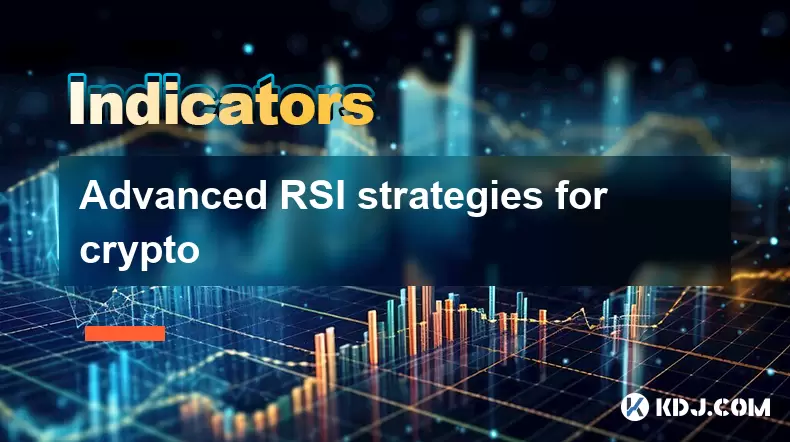
Advanced RSI strategies for crypto
Jul 13,2025 at 11:01am
Understanding the Basics of RSI in Cryptocurrency TradingThe Relative Strength Index (RSI) is a momentum oscillator used to measure the speed and chan...
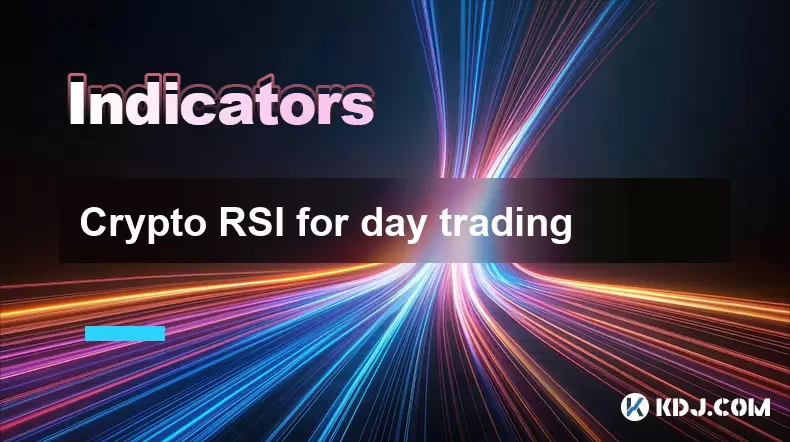
Crypto RSI for day trading
Jul 12,2025 at 11:14am
Understanding RSI in the Context of Cryptocurrency TradingThe Relative Strength Index (RSI) is a momentum oscillator used to measure the speed and cha...
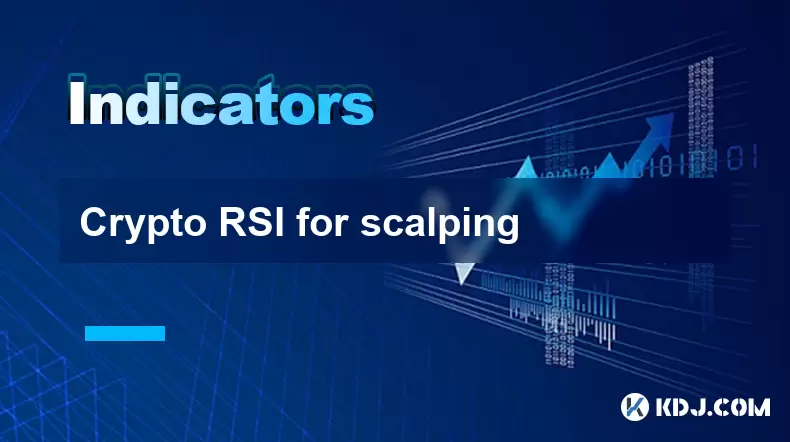
Crypto RSI for scalping
Jul 12,2025 at 11:00pm
Understanding RSI in the Context of Crypto TradingThe Relative Strength Index (RSI) is a momentum oscillator widely used by traders to measure the spe...
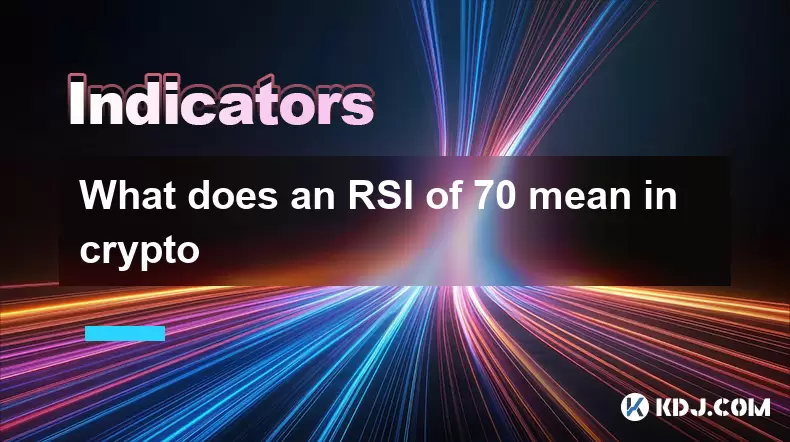
What does an RSI of 70 mean in crypto
Jul 13,2025 at 06:07pm
Understanding the RSI Indicator in Cryptocurrency TradingThe Relative Strength Index (RSI) is a widely used technical analysis tool that helps traders...
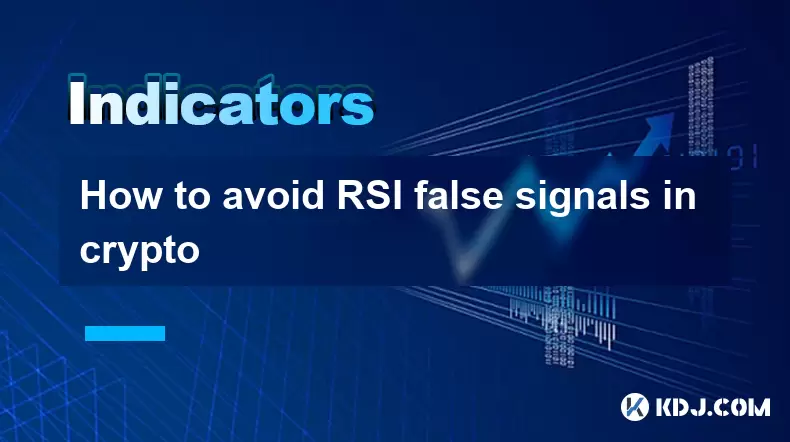
How to avoid RSI false signals in crypto
Jul 13,2025 at 06:21pm
Understanding RSI and Its Role in Crypto TradingThe Relative Strength Index (RSI) is a momentum oscillator used to measure the speed and change of pri...
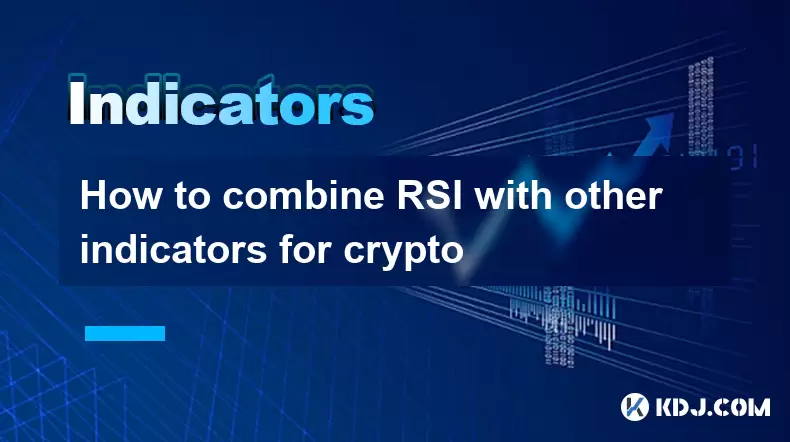
How to combine RSI with other indicators for crypto
Jul 12,2025 at 08:35am
Understanding the Role of RSI in Crypto TradingThe Relative Strength Index (RSI) is a momentum oscillator that measures the speed and change of price ...

Advanced RSI strategies for crypto
Jul 13,2025 at 11:01am
Understanding the Basics of RSI in Cryptocurrency TradingThe Relative Strength Index (RSI) is a momentum oscillator used to measure the speed and chan...

Crypto RSI for day trading
Jul 12,2025 at 11:14am
Understanding RSI in the Context of Cryptocurrency TradingThe Relative Strength Index (RSI) is a momentum oscillator used to measure the speed and cha...

Crypto RSI for scalping
Jul 12,2025 at 11:00pm
Understanding RSI in the Context of Crypto TradingThe Relative Strength Index (RSI) is a momentum oscillator widely used by traders to measure the spe...

What does an RSI of 70 mean in crypto
Jul 13,2025 at 06:07pm
Understanding the RSI Indicator in Cryptocurrency TradingThe Relative Strength Index (RSI) is a widely used technical analysis tool that helps traders...

How to avoid RSI false signals in crypto
Jul 13,2025 at 06:21pm
Understanding RSI and Its Role in Crypto TradingThe Relative Strength Index (RSI) is a momentum oscillator used to measure the speed and change of pri...

How to combine RSI with other indicators for crypto
Jul 12,2025 at 08:35am
Understanding the Role of RSI in Crypto TradingThe Relative Strength Index (RSI) is a momentum oscillator that measures the speed and change of price ...
See all articles

























































































